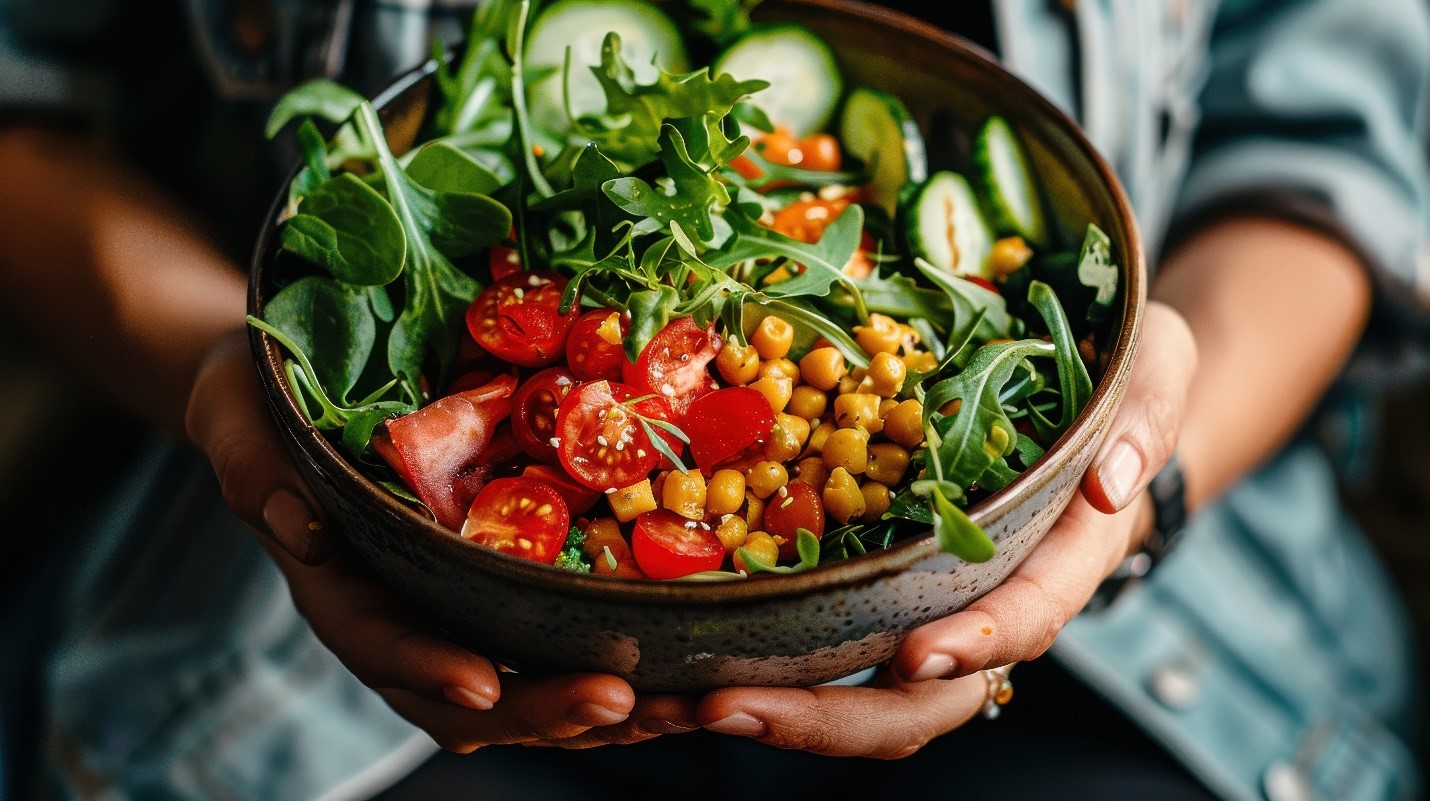Maintaining kidney health is crucial, especially for people living with chronic kidney disease (CKD) or diabetes, conditions that can significantly impact kidney function over time. Diet plays a vital role in managing these conditions, and many patients and healthcare professionals explore plant-based and vegetarian diets as options for better kidney health. But what exactly distinguishes these diets, and how do they affect kidney disease and diabetes? This blog clarifies the differences and outlines their potential benefits and considerations for kidney health.
Understanding the Vegetarian Diet
A vegetarian diet excludes meat, fish, and poultry. People choose vegetarianism for various reasons, including ethical, cultural, or religious beliefs. There are several types of vegetarian diets:
- Lacto-vegetarian: Includes dairy products but excludes eggs and all types of meat.
- Lacto-ovo vegetarian: Includes both dairy and eggs but excludes all types of meat.
- Vegan: Eliminates all animal-derived products, including dairy, eggs, and honey.
- Pescatarian: Includes fish, though this isn’t always considered true vegetarianism.
While a vegetarian diet eliminates meat, it does not necessarily guarantee a healthy diet. Some vegetarians consume processed foods including white bread, sugary snacks, and refined grains, which offer little nutritional value and may contribute to health problems. Therefore, how healthy a vegetarian diet is depends largely on food choices and meal planning.

What is a Plant-Based Diet?
A plant-based diet centers around whole, minimally processed plant foods like fruits, vegetables, whole grains, legumes (beans, peas, lentils), nuts, and healthy fats such as olive oil. Unlike vegetarian diets, plant-based diets do not necessarily exclude all animal products, but instead emphasize eating these animal-based foods less frequently and in smaller amounts. Some people find setting certain rules to follow as often as possible helps them decrease animal protein intake. For instance, avoiding animal protein until dinner time can be a good start. In other words, no animal protein for breakfast or lunch but then including animal protein at dinner time. Another rule might be avoiding animal protein on Monday, Wednesday, and Friday night dinner as often as possible.
People typically adopt a plant-based diet for health reasons, including improved heart health, weight management, and blood sugar control. This diet strongly limits or avoids processed foods, refined grains, sugary beverages, and snacks high in salt or unhealthy fats.
Kidney Health and Diet
Here are some ways these diets can positively affect kidney health:
- Weight Management: Plant-based diets are typically lower in calories and higher in fiber, making it easier to maintain a healthy weight—an important factor in protecting kidney function.
- Blood Pressure Control: Since high blood pressure can both cause and result from kidney disease, managing it is key to slowing disease progression. Plant-based diets have been shown to help reduce blood pressure due to lower sodium intake and higher potassium from fruits and vegetables.
- Diabetes Management: Since diabetes is a major contributor to kidney disease, managing blood sugar levels is essential for kidney health. Plant-based diets may improve insulin sensitivity and blood sugar control, helping to prevent or manage diabetes and as a result protect kidney function.
- Lower Acid Load: Animal protein can increase acid load in the body, which may contribute to kidney damage. Plant proteins tend to produce less acid, which places less stress on the kidneys.
- Phosphorus Control: Excess phosphorus in the blood is common in kidney disease and can harm bones and blood vessels. Phosphorus from plant sources is less readily absorbed than from animal sources, making plant-based diets advantageous in managing phosphorus levels.
- Antioxidants: Fruits and vegetables are rich in antioxidants such as vitamins C and E, which help protect kidney cells from damage.
Plant-Based vs. Vegetarian Diet for Kidney Disease: What to Consider
While both diets can be beneficial, it is essential to plan carefully, especially for people with advanced kidney disease or those on dialysis.
- Protein Intake: Protein needs vary depending on kidney function and treatment. Plant-based proteins such as beans and lentils are nutritious but may contain lower levels of certain essential amino acids compared to animal proteins. Dialysis patients often require higher protein intake, and animal sources may be necessary to meet needs.
- Potassium Management: People with CKD sometimes need to limit potassium intake to prevent dangerous heart rhythm disturbances. Many plant-based foods are rich in potassium and may need to be limited in kidney diets. Working with a dietitian can help manage potassium through food choices and preparation methods while still maintaining a nutrient-rich diet.
- Phosphorus Levels: Although plant phosphorus is less absorbable, excessive consumption of nuts, seeds, and legumes can increase phosphorus intake. Patients should monitor phosphorus levels and follow guidance from their healthcare team.
- Processed Meat Alternatives: Vegetarian diets may include processed meat substitutes like veggie burgers and sausages, which can be high in salt and unhealthy fats. These should be consumed sparingly.
Special Considerations for Diabetes and Kidney Disease
Because diabetes is a major cause of kidney disease, it’s important to choose a diet that supports both blood sugar control and kidney health.
- Plant-based diets high in fiber and low in refined carbs help keep blood sugar stable.
- Reducing animal fats and processed foods helps improve insulin sensitivity and supports better blood sugar control.
- Balancing protein, carbohydrates, and fats is key to effectively managing both diabetes and kidney disease. Diabetics particularly benefit from the advice of a dietitian before making a major change to their diet.

Practical Tips for Following These Diets Safely
- Consult Your Healthcare Team: Before making major dietary changes, consult with your nephrologist and a registered dietitian experienced in kidney disease. They can tailor a plan for your stage of CKD and other health needs, including diabetes.
- Emphasize Whole Foods: Opt for fresh fruits, vegetables, whole grains, and legumes while reducing intake of processed foods.
- Watch Portion Sizes: Balance protein sources and be mindful of potassium and phosphorus content, especially in later stages of kidney disease.
- Hydration: Stay well hydrated as advised by your healthcare provider.
- Limit Salt: Reduce sodium intake to help control blood pressure and reduce kidney stress.
- Meal Planning: Plan meals in advance to help ensure you meet your nutritional needs without exceeding limits on potassium, phosphorus, or protein.
Both plant-based and vegetarian diets can support kidney health when carefully planned, particularly for those living with chronic kidney disease or diabetes. These diets can help manage weight, control blood pressure, improve blood sugar levels, and reduce kidney stress, potentially slowing disease progression.
It is important to understand the distinctions between these diets and the nutritional considerations involved, especially concerning protein, potassium, and phosphorus intake. With professional guidance and thoughtful meal planning, people with kidney concerns can successfully adopt a plant-based or vegetarian diet that supports their overall health and well-being.

